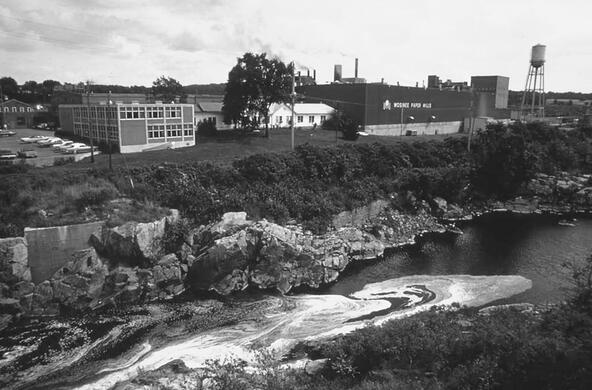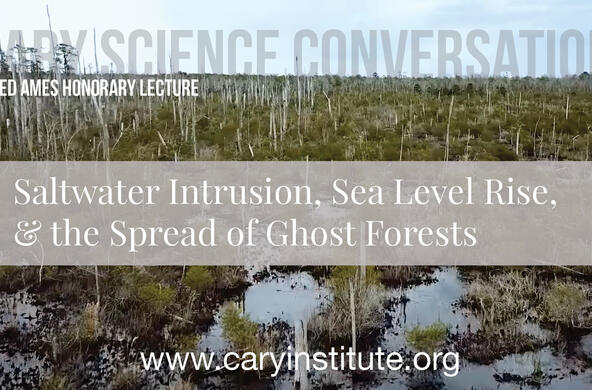Recently we asked Dr. Joshua Ginsberg, president of the Cary Institute, for his thoughts about the Paris climate change accord, or the Paris Agreement, signed by 195 nations in December. Although he admits that there are flaws — it falls short of the reductions in greenhouse gasses scientists believe necessary and is a voluntary, and therefore non-binding, agreement — he believes it is “a real step forward” that establishes a framework for moving ahead.
Dr. Ginsberg, whose career in conservation science spans 35 years and several continents, says the accord was reached because countries were allowed to come up with ways of reducing their greenhouse gasses that were both economically and politically appropriate for each one individually. As a result, all the world’s governments, including the United States, made commitments to reduce their carbon emissions. In addition, all the developed nations pledged one hundred billion dollars a year for technology transfers to help to the poorer nations meet their targets.
A number of factors contributed to the success of the accord. What also made a huge difference was the meeting before the conference between Al Gore, Bill Gates and President Obama. They made the point that the way government structure subsidies and incentives to support the private sector is critical to the adoption of green energy solutions and investment in those solutions.
Dr. Ginsberg finds other reasons for hope. He believes the economics of alternative energy are changing for the better. In fact. alternative energy is growing faster than any other sector of the economy. In addition, energy storage systems now make it possible for some places to be off the grid entirely. Here in Millbrook, the Millbrook School recently installed a solar array that provides much of the School’s electricity, and the Cary Institute is in the planning stages to develop a 900 kw solar array that would provide 100% of their electrical needs.
Nonetheless, achieving a post fossil fuel economy will require a number of different approaches. “We’re not going to find a single technological fix but the combination of better technology plus reduction in demand through conservation and efficiency should help to keep our energy consumption stable and not increase it.”
Dr. Ginsberg cited, as an example, Isamu Akasaki, Hiroshi Amano, and Shuji Nakamura who shared the 2014 Noble prize for physics for their invention of efficient white LEDs that use 75% less energy than incandescent. Because lighting is a big piece (15%) of our energy consumption, this single invention has and will continue to make a huge reduction in energy demands.
As extreme weather events increase in frequency and intensity people are starting to believe that climate change is a reality and that the release of greenhouse gas is the cause. If you accept climate change as a reality that is getting worse, then you have to do something about it and the few climate change deniers in congress will have a harder and harder time having their ideas accepted.
Nor should we underestimate the impact of Pope Francis’s encyclical. People of all faiths were moved by the intelligence of what he had to say. Faith can be in an important bridge to environmental issues and environmental justice will increasingly be at the heart of the issues.
As for the Cary Institute, their scientists are providing the data that is needed to understand and mitigate the impacts of a warming planet. Dr. Ginsberg quoted Daniel Patrick Moynihan who said, “You’re entitled to your opinions but not your own facts.” At Cary they try to provide the decision makers with the facts they need to form their opinions. “We do science that helps define the problem and then find solutions to those problems.”
Finally we should remember you may not be able to change the way nature works, but you can change what we do.





